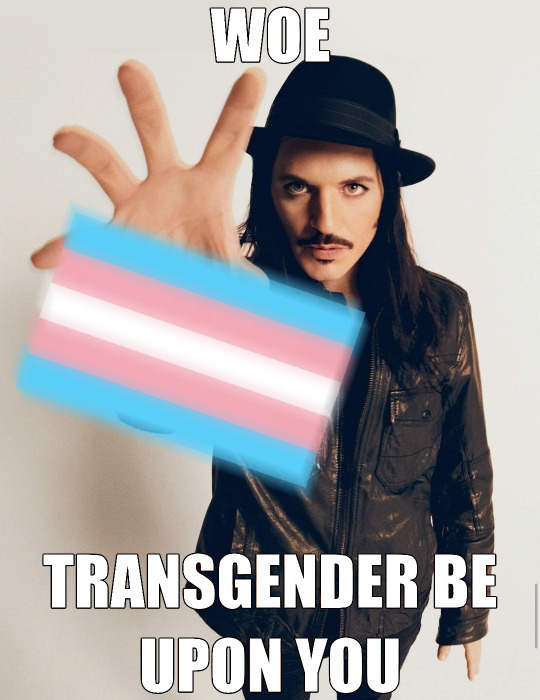#it was too structured for him
Text
my son is an artsy little thing, and I can’t get enough of it. I would have encouraged whatever he was interested in, but I’ve been especially thrilled about this, I can’t lie. my step-dad really wanted him to get into sports, and he is super active. god, he loves to run and jump and climb, and he’ll practice skateboarding and playing mini golf and all sorts of things whenever given the chance, but you know what he said when watching the super bowl with them? In football you have to tackle each other...that’s kind of mean, right? He’s so kind and so soft, and I love him for it. He did ask recently to take soccer lessons because this girl down the street plays, and he wants to do it with her, but other than that, he sort of just shrugs off sports whenever asked. I don’t think he has it in him to be rough and competitive like that (although he does turn every single thing he does into a race), and that’s totally fine, and it would have been totally fine if he was, but man does he love theater and dance. I’ve never gotten so many compliments in my life. They’re obsessed with him. Parents saying he stole the show, and the directors saying he can sign up for summer camp even though it’s full, and my heart is so full. He wants to sign up for gymnastics too, but he already takes classes three days a week, and I don’t know how to squeeze it all in. I went to all three shows tonight, and it was incredible watching all the kids grow into themselves, how they found voices and confidences by show three that they did not have in the first, and my kid is five, so he had no lines, and he often got distracted, and he waved a lot during the songs, and he had a whole two minutes where he stood there under the spotlight with his hands in his pants, but my god, his smile, I’ll never forget it. He danced, and he sang, and he smiled, and he laughed, and I’ll never stop loving things like this. Seeing him like this today gave me enough love to get through this bullshit week, and I really needed that.
#my heart is so full#it really is#he's so goddamn beautiful#he also loves music#he's taken an interest in the drums#and he recites all the openings to disney rides#like full on different voices and inflection and all#he asked to try a karate class and I let him and he HATED IT#it was too structured for him#theater and dance he asked to try and he loved it#h eloved gymnatics too but i had trouble finding an opening#i'll forever let him try whatever he asks#i hope he continues to be such a happy and passioante kid
0 notes
Text
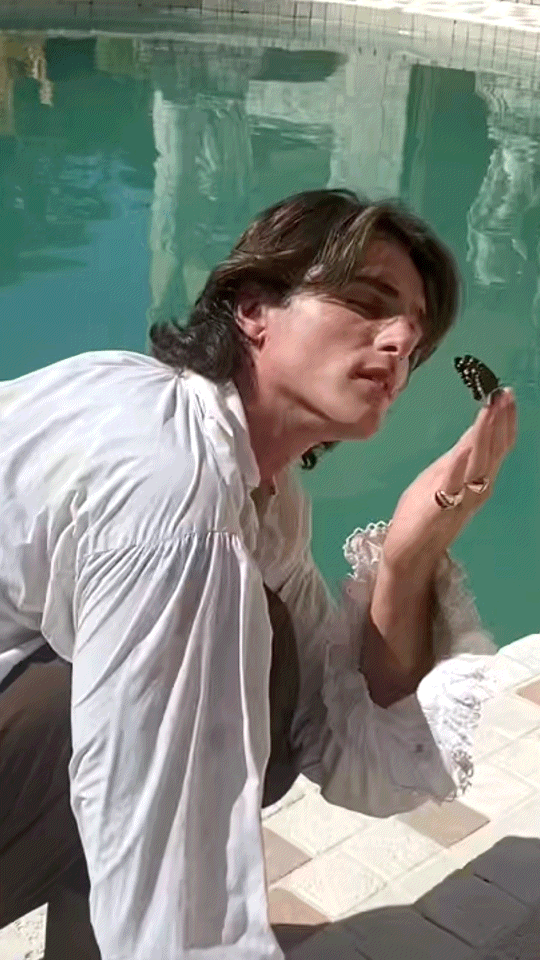
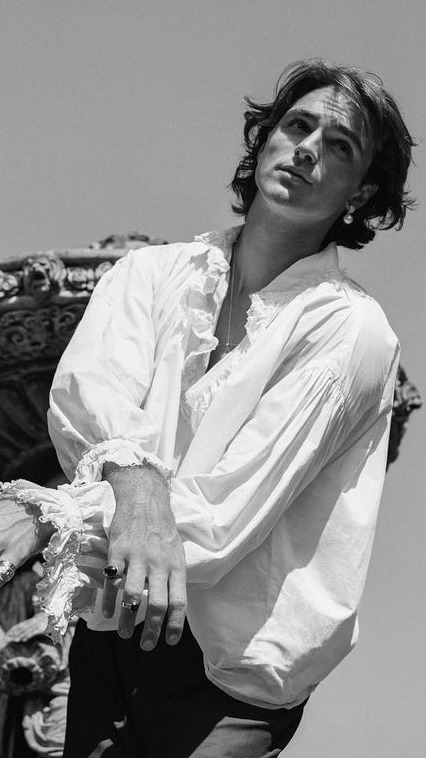

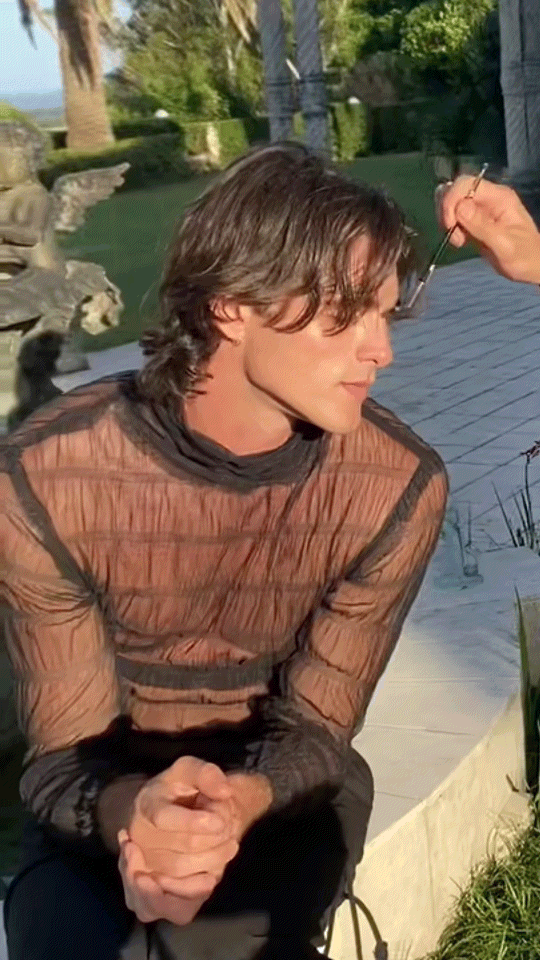
Jacob Elordi for Man About Town
#kids used to bully him for being too pretty they would chase him around the playground shouting pretty face pretty face#hes soooo. no words like thats just a very pretty man.#i am so jealous of his bone structure and hair#plus the masc lesbian lookalike wardrobe#jacob elordi#man about town
1K notes
·
View notes
Text
Thoughts on Geto Suguru's Psychology Pre-Defection
There's something that I've been meaning to talk about for a while now, and that is Geto's apparent tendency to conceal his negative impulses that allows for, in my view, faulty interpretations stating that he was faking his righteous beliefs all along just because assuming high moral ground gave him a sense of superiority and fed his ego. Meanwhile I would argue that, on contrary, this habit is more indicative of Geto's insecurities and heightened sense of self-awareness.
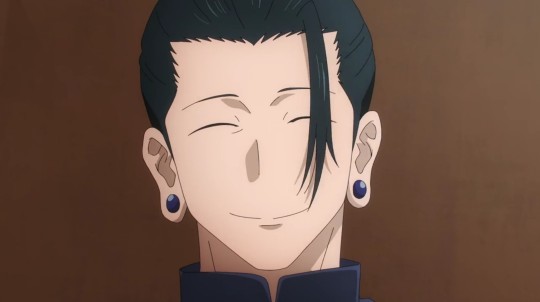
My thoughts on this underneath the cut, but beware: it's going to be long!
To begin with, I think there are two major factors playing into the misconception that I mentioned. The first one boils down to prejudice forcing people to look upon younger Geto through the lense of a person he would go on to become. The kind of cautious logic that says that a deeply empathetic, caring highschooler couldn't have turned into a murderous cult leader preaching the merits of genocide, and thus seeks ways to dehumanize him from the very beginning (because that's a terrible concept to wrap your mind around, I agree). And the second factor being... well, that Suguru's behaviour really does come off as fake at times.
We experience 'negative' emotions as naturally as 'positive' ones, and despite some of them are conventionally accepted as 'good' whereas others are painted as 'bad', no emotion is inherently harmful or invalid; they all are a part of what makes us human. While it's undoubtedly a chilly and ominous concept for someone to be completely devoid of any positive traits, just as unnatural it is to display positive responses only. Perfection is stored away at museums, no living breathing human being can go through their life without being affected by negative impulses or thinking. But more often than not negative emotions are condemned and stigmatized (in the end, we still refer to them as 'negative'), and self-consciousness can make one ashamed or guilty of experiencing them. The end result of this would be trying to hide your feelings under one more appealing appearance, creating a warp between what's intuitive and what's manifest, an inadequate emotional response.
Gojo (at least in his teenage years) is widely outspoken and doesn't hesitate to outwardly express himself, whether verbally or via body language. It probably takes root in Gojo's upbringing: he was spoilt rotten, revered for being born with a silver spoon in his mouth, his every whim indulged and tended to. There simply wasn't any need for him to try and make a good impression by faking docility and emotions that are more pleasant and easier to digest. Gojo may be boisterous and bratty and obnoxious, but he isn't trying to 'trick' anyone into thinking he's better than he really is, and this paints a more sincere, believable picture to the audience.
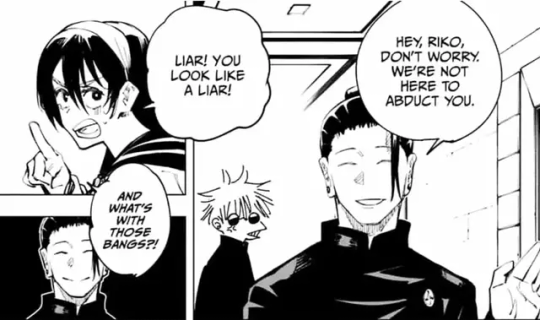
On the other hand, Geto's emotions, partly due to his more solemn demeanour, are often toned down or consciously concealed. For instance, when Riko manages to strike a nerve in him, his response is to immediately plaster on mawkish 'customer service' smile to not give away his annoyance. This scene is especially interesting to me because of how Amanai's reaction gives voice to the audience's concerns. Referring to Suguru, she says, 'You look like a liar!' -- and by doing so calls him out on his tendency to mask negative emotions. Intuitively, she can still read his feelings in his body language, in the delay in his expression rearranging itself into a smile, and so can the viewer. We know he's annoyed, and his words about having no intention to harm Riko don't exactly align with how he behaves (even if in a playful manner) a moment after saying them. It creates a tangible contradiction between what he says his intentions are and what his actions speak of, between the appearances and what lies behind them. And this contradiction raises suspicion, in a way that if somebody's making an effort to hide something, then there must be something to hide.
In retrospect this doubt might seem reinforced and justified. I see how it's easy to fall into thinking that Geto, having become a criminal who's done unspeakably cruel things and who backs up his delusional ideals with bigoted reasoning, should've been hiding darker parts of himself behind all those fake smiles and talks about righteousness. But pinning the blame on Geto alone by claiming that he had violent tendencies to begin with is essentially disregarding systematic issues that the story strives so much to convey to the audience. Holding innate individual qualities accountable for the catastrophe is basically the sort of thinking that the higher-ups display, whose main strategy for dealing with problems is public scapegoating and disposing of every single threat to the current order by giving out one death sentence after the other. I don't think we as the viewers are supposed to reach the conclusion that Suguru is at fault for what happened, which is not to say he's faultless, nonetheless the narrative goes to great lengths to make us sympathize with him, not the other way around.
Now, there's really a handful of ways in which Geto's character seems to contradict himself. He shares overspilling empathy for the people around him, that is his character's core trait, but that very empathy spells out his downfall when it degrades into resentment and hate. He displays a largely considerate and sympathetic demeanour, but he's first introduced to the audience as someone who backhandedly bad-mouths Utahime for being weak. He's one half of the strongest duo, but whereas Gojo is a natural-born genius, Geto evidently struggles with his powers. His entire career as a curse user is based on the mentality which justifies the means to an end, but reaching the end goal is impossible for him as he is, Geto himself as much as admits to it during his last conversation with Satoru. He sets on his wild-goose chase for power, but ends up stagnating to the point where his use of Curse Manipulation in the Hidden Inventory Arc is much more inventive and creative than in Jujutsu Kaisen 0. The list goes on, but you got the gist.
To live for the purpose of being yourself. And for that goal, Geto could only continue to pursue his twisted dream, drowning himself in a curse that lies in the gap between ideal and reality.
I believe this to be such a poignant phrase when it comes to Geto's characterization because of how well, in my view, it encapsulates the conflict of his character -- or, if you will, the contradiction of it. It succinctly expresses his outlook on things, where he views the world how it's ideally supposed to be rather than how it realistically is. I've actually somewhat already elaborated on this in my very first rambling on here:
To me, Geto seems to be a type of person who needs something to guide him, some clear-cut ideal to make it possible for him to navigate through his life. He is pedantic in that sense: the sharp outlines of his views define his surroundings, the very way he looks at things and perceives them. He needs everything to fall precisely in line with his own set of ideals, which seems to be quite verified and well-adjusted within his mind, like a strict and refined concept he constructed for himself, like a routine he's used to following out of pure principal. His own belief system being so defined, it's that which makes him indulge in excessive discourse on the subject of morality and responsibility, like he's patiently laying out the basics in front of a disobedient child to help them wrap their mind around some fundamental truth that is so obvious and natural for him.
In a way, Geto concealing his negative emotions is not a false front put up against scrutinizing looks that could reveal his 'true nature'. Quite the opposite, I think it speaks more of his well-meaning intentions. When trying to change the way things are, start at yourself, and I guess this is the principle Geto's trying to apply here. By following through his own ideal, Geto does his best to be an upright person he believes himself obliged to be, whether that means forcing himself to absorb curses or putting on a customary smile. It might be juvenile and wishful thinking on his part, probably akin to 'fake it till you make it', but it's important to keep in mind that at that time he was still but a teenager. Moreover, he was put on par with somebody as praised within jujutsu society as Gojo, he must've felt on top of the world, too entranced by their warm spring of youth to care too much about the occasional slips. With Satoru by his side, I imagine Geto could afford to cut some slack and participate in the mischief. Later we see post-defection Geto drop his frivolous facade only when he's entirely alone -- another hint at how Gojo was really the only person Suguru allowed himself to confide in, that is untill the SPVI put uncrossable distance between them.
While I do say that Geto's intentions are well-meaning, the way he positions himself actually reveals some quite problematic aspects of his mindset. Namely, his attitude towards non-sorcerers, whom he clearly sets into a different category from himself and his fellow sorcerers. Regular people lack crucial understanding, they are weak because they are helpless, therefore they have to be shielded from the source of harm. This is a largely patronizing concept of empathy, since it's based on the notion that the 'weak' are inherently inferior to Geto himself and others involved in jujutsu society. It's interesting how it's reflected in Geto's insistence on the necessity of curtains. The use of curtains furthers the extent of non-sorcerers' ignorance, they never learn how to stay out of harm's way as they are deprived even of as much as their perception of the existing danger. It reminds me of how a parent would brush a child's concerns aside because they're too young and naive and do not need to be aware of adult life's hardships. Just like Geto's paternalistic outlook, it does not come from malice or negligence, it's just an attempt to keep someone less experienced and skilled safe. Nonetheless it's harmful as it puts that person in a position which denies them agency.
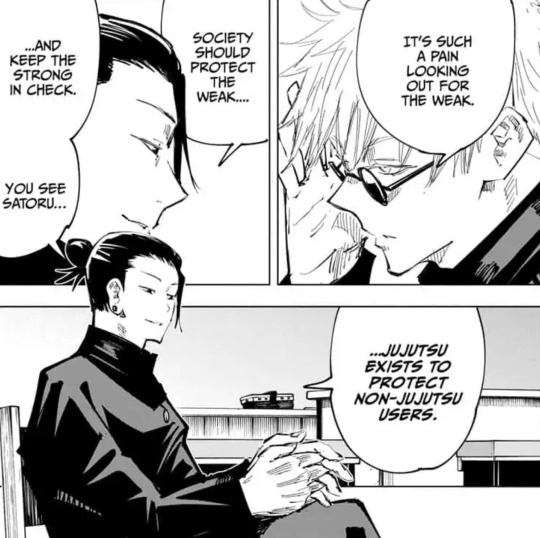
In my view, Suguru's fake smiles are an extension of his acute sense of responsibility. In front of those over whom he assumes responsibility, he presents himself as calm, collected and dependable as if it's supposed to reassure them. It's his job to protect them and make them feel safe, so there's no need showing them his own struggle. Even if such thinking is condescending, it's not in any way malicious. Geto's entire character arc would be simply non-existent if he wasn't completely genuine in his sentiments.
So why do I talk about Geto's insecurities when first introducing the topic of this post? Well, I'm about to take a deep dive into the field of speculation and theories and finally get to the point why I'm writing all this in the first place (took me long enough, lmao). There's also a reason why I brought up Gojo's upbringing when talking about his personality and how it contrasts Geto's. You see, like Satoru's way of dealing with his emotions can be linked to his childhood experience, Suguru's behaviour might also give us some clues about the circumstances he grew up in.
The more I look into it, the more convinced I become that Geto was in one way or another exposed to emotional trauma in his childhood. Remember when I mentioned inadequate emotional responses? While being one, smiling in reaction to stress may act as a defense mechanism of sorts, shielding the person from the chronic nature of the unpleasant experience. It also may serve as a way to avoid alienation by others who are not privy to the source of your distress or are not comfortable with it. Affiliative smiles are motivated by social factors, it's a tool used to create and maintain social connections. Human beings are hardwired to connect with others, feeling alienated by the people around us causes us great pain.
The thing us, we must assume that Geto is relatively new to the jujutsu world in the flashback arc. Given his non-sorcerer background, chances are he was the only one in his immediate surroundings with the ability to see and exterminate curses. There couldn't have been a way for him to confide in someone with his concerns and fears born from interacting with something only he could see. So I assume that eventually that resulted in Suguru developing an unhealthy habit of masking his emotions before the ones he cared about. And as over time he grew more aware of his abilities and got a grasp on how his CT works, I imagine Geto committed to exorcising curses in order to protect ordinary people from them -- all by himself. This, in turn, must have solidified that conception in Suguru's head which ultimately othered him from the people around him and put them in a position inferior to him since they were the ones depending on him and his powers.
As Geto should've mostly kept to himself, I also see how he might have grown heavily reliant on his analytical mind. Overthinking is a habit developed early on in life as a way to wade through feeling uncertain or unsafe. It's an attempt to make sense of confusing reality by applying an analytical lense to it and compartmentalizing it into neat, easily understandable categories. And also a way to regain sense of self when you find yourself in a situation you otherwhise have little to no control over. And while over-analyzing can create a sense of security, it may also interfere with a person's emotional responses. I guess it's something that could be applied to Geto, too, because for such a self-reflective character he always struck me as someone with oddly little regard of his own feelings.
As a side note, I like how Geto's tendency to over-analyze things is shown in that one scene when Yaga's briefing him and Gojo on the upcoming mission. Suguru's clearly presented as someone who's very mindful of how the world around him works. Understanding helps him assign meaning to different aspects of life, and he relies upon it heavily. Also, as someone who's been uprooted from his former society and introduced instead to an entirely different world, I guess it's important for Geto to fit in. Him being highly knowledgeable about such essential details is, in my view, indicative of such effort on his part. Whereas Satoru simply does not care about such details, the reality makes sense to him as it is as he was born perfectly fit into it.
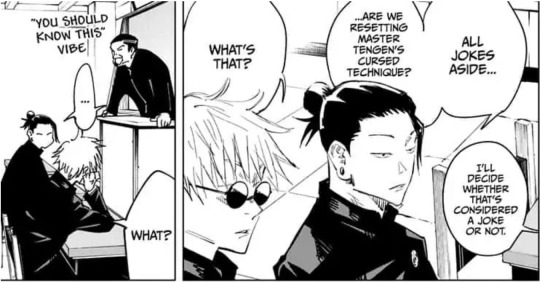
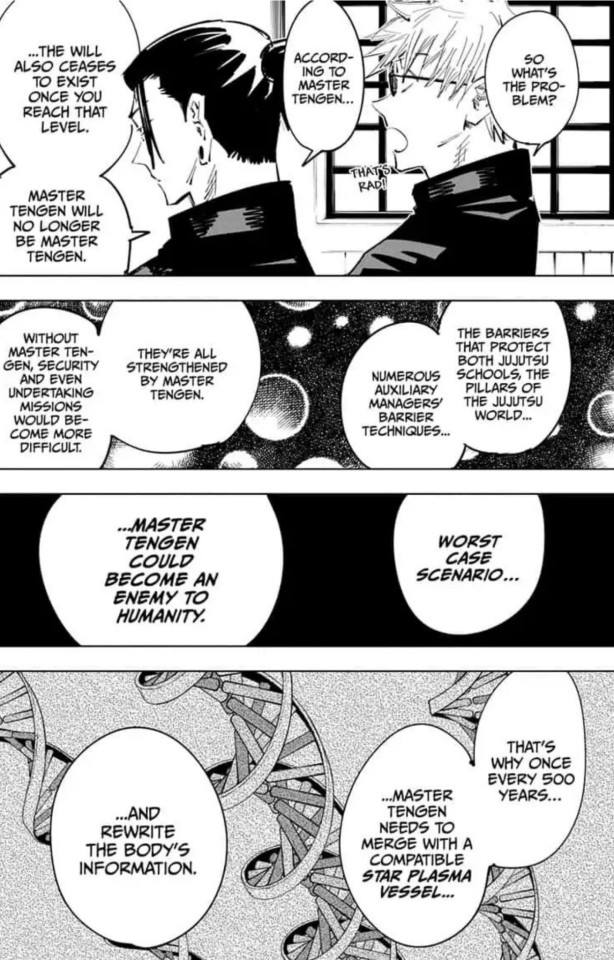
Last but not least, Geto's infamously guilty of a dichotomous, or black-and-white, outlook on things. This is the all-or-nothing mentality that leaves little to no room for nuance and does not allow two opposite statements to be true at once. It's a common cognitive distortion that manifests immature thought; a rigid mindset more often than not bordering on extreme. Meanwhile the very foundation of Geto's downfall is the inability to adapt to the complicated reality which doesn't align perfectly with his idealistic vision. He ultimately failed to wrap his head around the world with grey areas, his black-and-white thinking thinking prevented him from doing so.
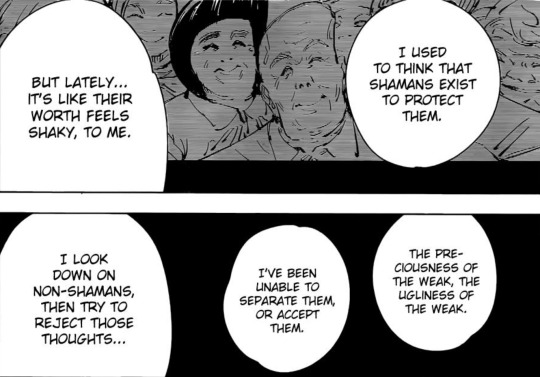
The development of such maladaptive personality traits has been repeatedly linked to the effects of childhood trauma. If the environment which a person grew up in was traumatic and chaotic, black-and-white thinking might have given them a sense of control through rationalization. That's why a mentality which doesn't allow for nuance and doesn't reflect life in its intricate complexity comes off as childishly simplistic. Seeing the world in all-or-nothing terms in some way means reverting to your inner child. And this is actually something that Shoko accuses Geto of during their brief conversation in Shinjuku. In his thinking Geto doesn't grow past his traumatic experience, whether it was his parents actively abusing his abilities for their own gain or the ache of being alienated at such an early age.
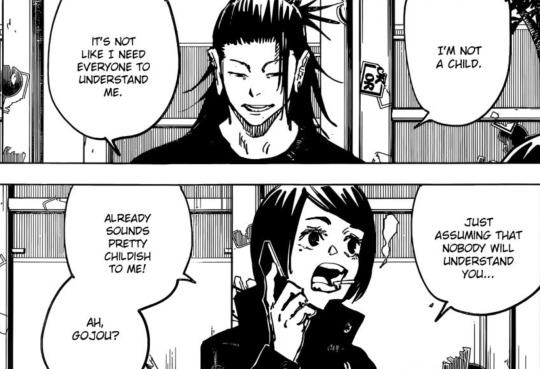
If the nature of Geto's relationship with his parents was abusive, it would also explain his altruism. Suguru goes out of his way to express his concern for well-being of those around him, and he does genuinely care, but all the while it could be a way for him to tend to his own unsatisfied needs by helping others. He seems to be highly attuned to others through his empathy, but also somewhat has trouble advocating for himself, resulting in harmful patterns of self-sacrifice or self-neglect.
It's true, there is a lot of contradictions housed within Geto's character, which are evident in his mindset and his actions. But I don't believe this to be due to sloppy writing, on contrary -- it's the kind of writing that speaks through detail and nuance and invites the reader to ponder why is this or that character the way they are.
#jjk#jujutsu kaisen#jjk analysis#jjk meta#geto suguru#gojo satoru#might as well tag him#i'm so sorry it's way too long for something so irrelevent considering all the recent events#and it probably needs proper structuring#i guess i'll edit it some time eventually#maybe
341 notes
·
View notes
Note
the AUDACITY of calling johnny ugly😭😭
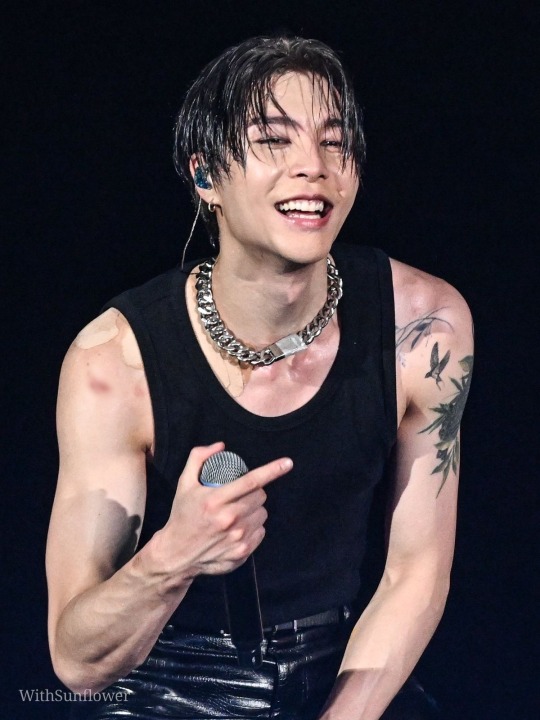
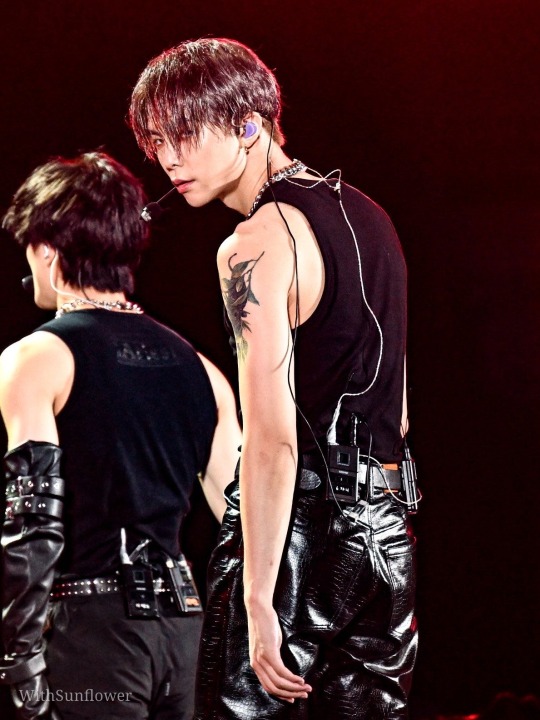
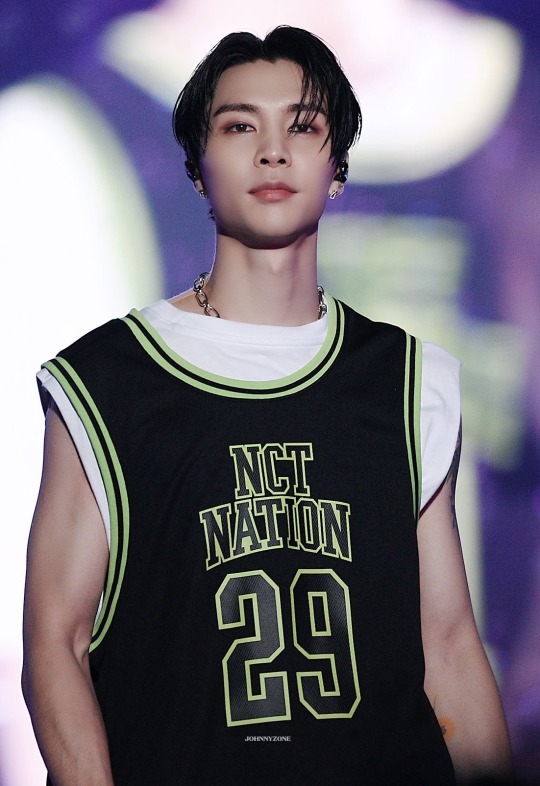
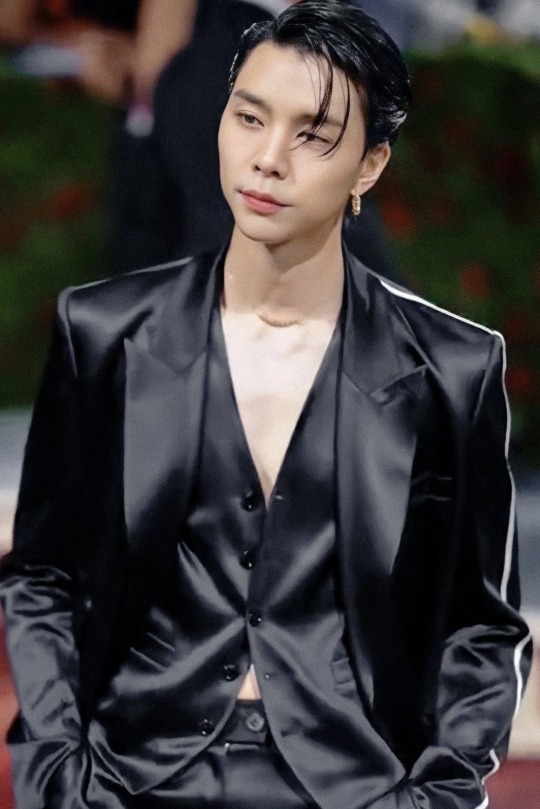
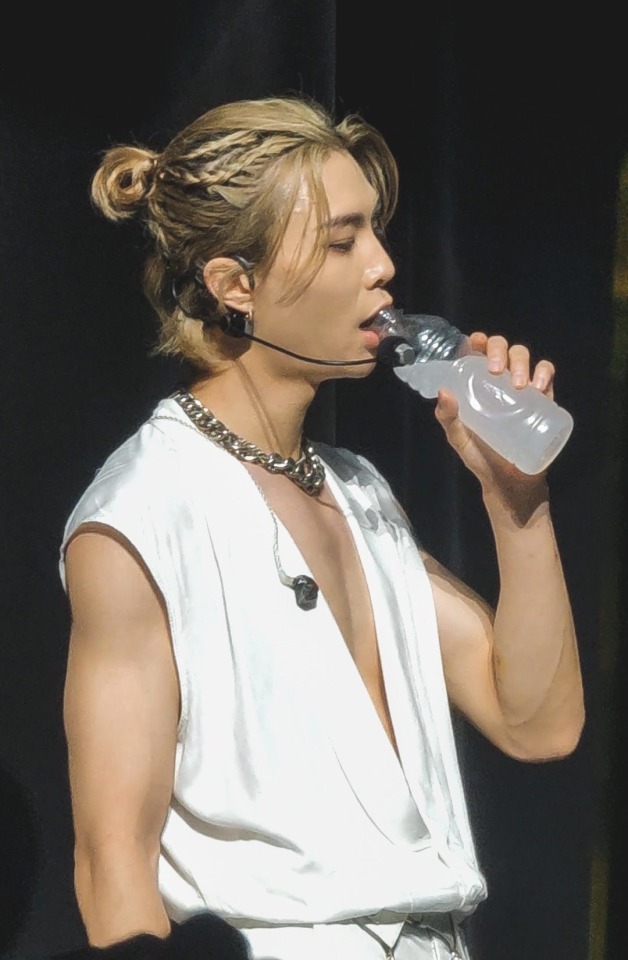
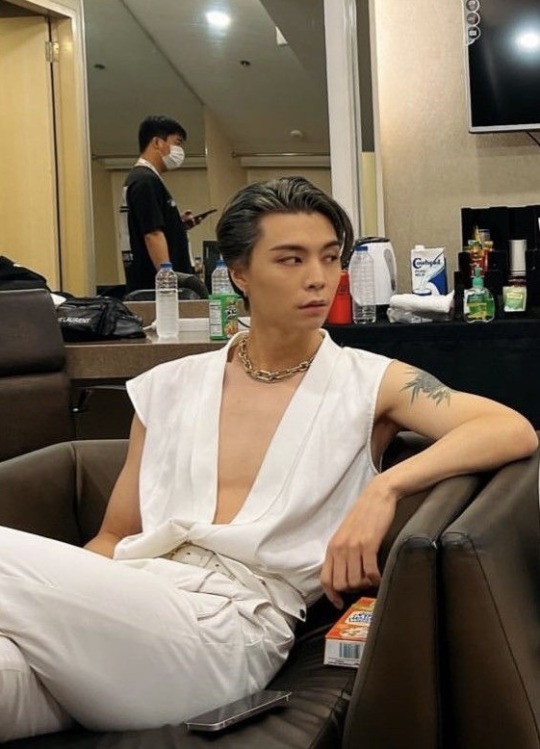
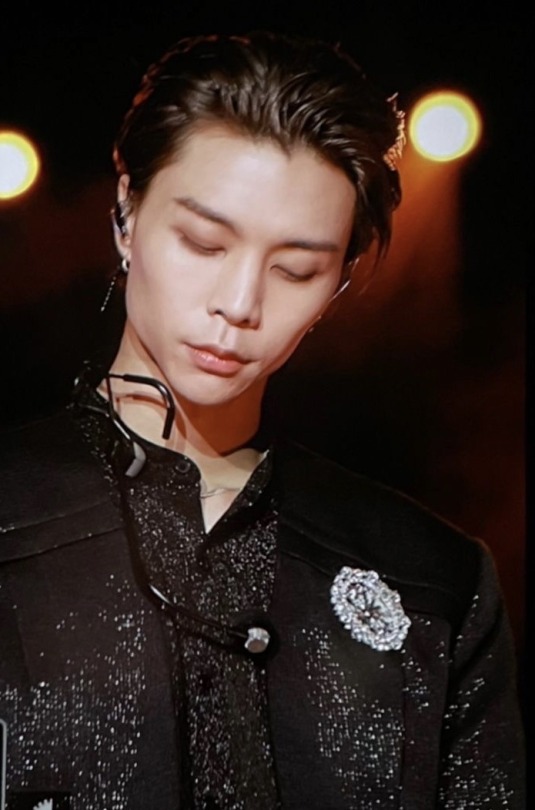
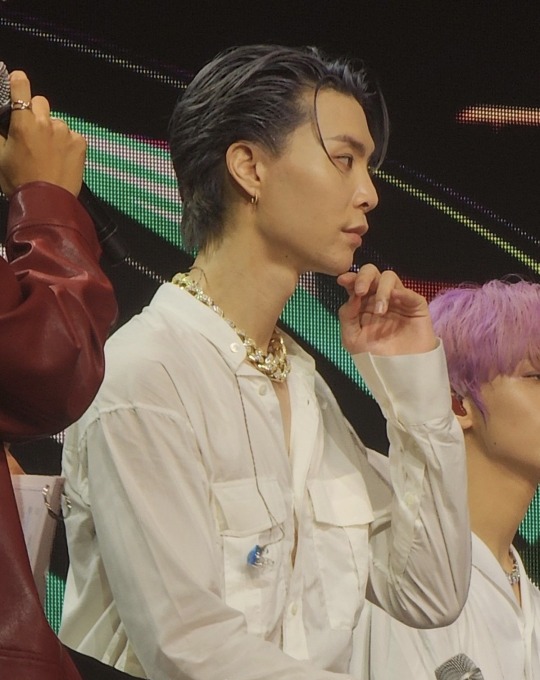
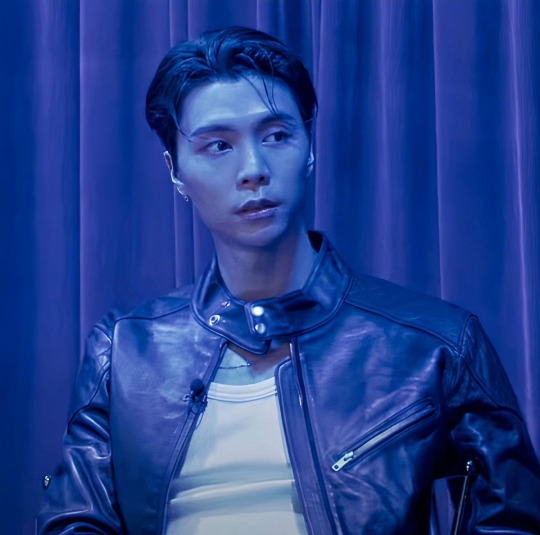
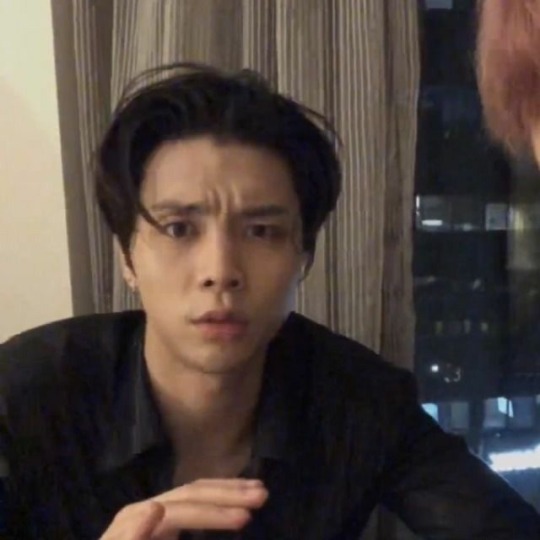
if he’s the standard of ugly, then call me ugly too shitttttt
278 notes
·
View notes
Text
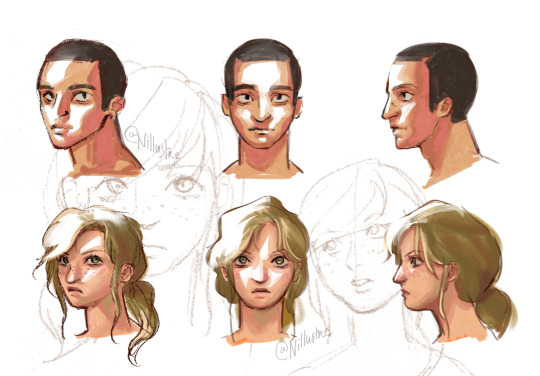
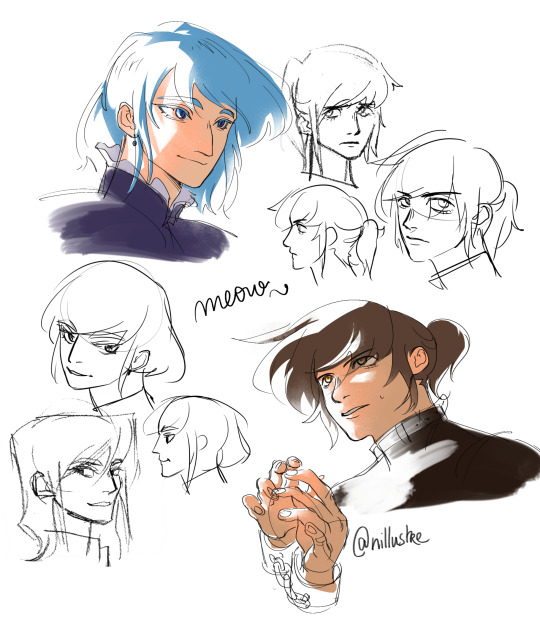
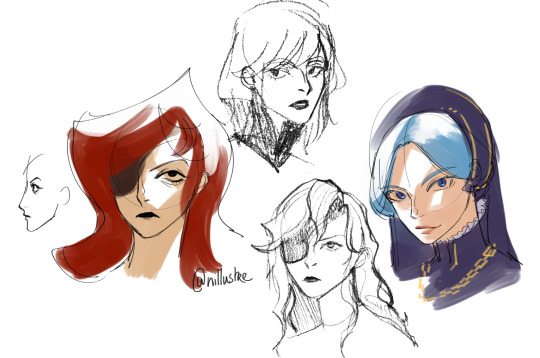
facial features headcanons ~
#tog#tower of god#2024#the 25th bam#khun aguero agnis#hwaryun#kiseia#bamkhun#khunbam#tog elizabethan au#shibisu#rachel#bam's whole theme is circles or roundness (at least around the beginning) so im trying to keep him not too sharp looking#on the other hand khun should be sharp - lots of angles - defined bone structure#hwaryun should exude an aura of “i dont want to be here” at all times#her nose is pretty long and flat#tare-me/tsuri-me dynamic save meeeeee (lying on the ground)#okay technically this is the 2nd time im making this sort of facial feature hc post for khun and kiseia but uhh the first one was not good#↑super indecisive
135 notes
·
View notes
Text
It's so funny how season 11 re-established that sometimes Zane can just. See the future, and then it's literally NEVER brought up AGAIN for some insane fucking reason, and then they decide Lloyd gets visions instead.
#NOW do i wish zane would get visions too still? absolutely they need to take him in some direction soon#maybe he could have more rational/structured visions or smth like how lloyd has the super crazy ones . to balance each other out#idk#ninjago#ninjago dragons rising#raine's rambles#ninjago spoilers
77 notes
·
View notes
Text
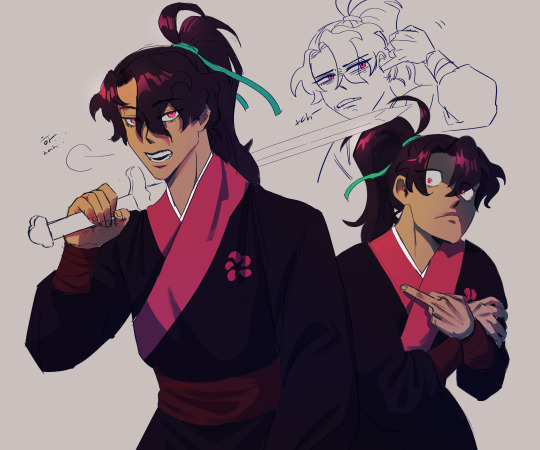
yknow i was trying to figure out how to draw him pretty and then immediately got sidetracked into drawing him as a bastard as the author intended.
#return of the mount hua sect#return of the blossoming blade#화산귀환#fanart#art#digital art#alp art#alp fanart#i wanted to draw him pretty because it's such a funny funfact to me#but also. mainly i just wanted to draw pretty eyes#every time i draw him it dissolves into silly expressions moments#he is annoyingly hard to draw#even when standing still he has bastard energy#and his bangs drive me insane.#basically i kinda wanted to figure out the structure of his face before pushing it into extreme expressions but#-gestures wildly- it never works out#he looks different every time i draw him#anyways. heres my boy. read the novel its good#also read the manhwa that's good too#its a very funny story#will it also make you cry? yes. that's the fun is it not.
266 notes
·
View notes
Text
I really am starting to notice a pattern in Helluva Boss:
1. Introduce new character that’s a threat or antagonist
2. Have them disappear for episodes and never be mentioned by the main characters or acknowledged, not affecting the main narrative at all.
3. Insert Stolitz episode or filler episode with the characters the exact same and never changing or adapting
4. Bring said antagonistic character back in the most underwhelming way possible
Repeat.
#I fucking hate how this show is structured on god you can tell the creator has no idea what she’s doing#tell me why the IMP gang hasn’t taken ANY precautions on the villains they came across or mentioned them#like did we just forget about the agents#and it’s still bs that the imp gang never told Stolas that there was an assassin hired to kill him#these characters are fucking idiots#nobody uses their brain in this show#there’s no fucking nuance#it’s just a cycle#see what happens when you’re too focused on introducing as many threats as possible in season 1?#I could go into more depth but not now#vivziepop critical#spindlehorse critical#helluva boss critical#helluva boss critique#helluva critical#helluva boss criticism#helluva boss
282 notes
·
View notes
Note
I definately see your point in regards to the politics of The Promise and the Korra side of things at large. On another topic, though, how could Mako have been improved upon as a character because I always thought he was the least interesting character in all of the Avatar universe? Maybe instead of just making him a bookkeeper make him a full on former Triad member?
awww no i kind of love mako tbh. my bland little saltine cracker. i think we need to make room in our hearts for more dull autistic utterly swagless men whose idea of a good time is simply doing the daily crossword while eating plain cornflakes (no milk). but real talk mako’s character definitely had room for improvement. not because he’s boring, but because all the actually interesting aspects of his character were largely relegated to subtext, and he was instead given boring ass subplots like “stupid love triangle,” “being a cop,” “having to babysit an annoying twink,” etc. so it’s not that his backstory needs improvement, but rather that if those largely subtextual elements of his character were actually teased out and explored in meaningful ways, he would’ve been much more interesting to watch, because his purpose in the story would actually have some fucking thematic depth.
in a better show, mako’s backstory, arc, and general narrative presence would’ve served to illustrate how the neoliberal economy of republic city detrimentally affects the socioeconomically disadvantaged. in the ba sing se arc, bolin sees the lower ring and is like “eww gross POVERTY!!!! no wonder dad left.” like my guy you were living on the street as a child forced to exploit your labor for gutter scraps. why is poverty all of a sudden an issue to you (you can claim he’s just in deep denial and/or quite literally an idiot, but still. lmfao). in a superior show, mako and bolin’s presence would implicitly prompt the viewer to ask, why does the presence of a nuclear family structure necessitate security, and why does its absence collapse any sort of social safety net? why were mako and bolin forced to live on the streets once they were orphaned? how does living in abject poverty in one’s formative years psychologically affect their relationship to wealth, power, security, and success? (mako and bolin only tangentially cover some of these questions in their arcs, most notably in mako’s decision to date asami over korra, and in bolin’s obtuse quest for fame.) furthermore, what parallels versus juxtapositions can be drawn from asami’s own complex experiences navigating wealth, paternal abuse, and systems of control as they directly pertain to the beneficiaries of these capitalist structures? in what ways can asami and mako&bolin bridge these gaps across opposite ends of the class hierarchy, and in what ways are these chasms fundamentally untraversable?
i feel like the main failing of lok was that it actually presented some really interesting concepts, but it seemed like most of it was purely by accident and the show had no actual interest in focalizing or even addressing the compelling subtext hidden between bland and/or frustrating scenes oversaturated with obnoxious characters. like mako and asami are ostensibly main characters, but we never actually get satisfying meat to chew on regarding their inner lives and characters arcs, despite them being two of the most compelling characters in the show just based off of premise and lingering subtextual allusions to more interesting themes than were actually addressed in the show itself. so like asami, who i adore mostly for what remains unspoken (her abusive relationship to her father, her ethical contentions with her own capital, her latent homoerotic feelings for korra, etc.), mako is also compelling me for reasons largely unaddressed outside of the occasional “oh well you’re traumatized from all that time you spent taking care of your brother who is only somewhat younger than you as a small child and selling yourself to criminal organizations to have enough to eat week by week, which probably informs your decisions somewhat now that you are technically an adult (he’s like. 18???? also???) so that’s cool i guess. but also what the fuck you’re so sick and twisted for being attracted to two gorgeous powerful women at the same time, you should go to JAIL!!!!!” and then they do. actually send him to jail. -_-
#mysticarcadehologram-blog#asks#lok crit#sometimes i remember how poorly written this show was despite all its potential and im just like wtf all over again#like both on a dialogue and structural basis. scene by scene season by season. this was a mess 😭#but mako is my silly little guy i love him <3333333#mako#bolin#asami#i don’t even rly address bolin outside of his proximity to mako bc besides the pilot where he is charming and cute and has a brain.#bolin does not interest me at all bc i cannot stand the dumb comic relief archetype#ppl just hate mako bc he fumbled two of the gorgeoust bitches in the world#but like. you’d fumble them too. be honest
92 notes
·
View notes
Text
Also... Post-canon lovesong... If you even care... "Is Sparrow still with Rebecca?" that part is a choose your own adventure babeeey~
#Posts for like 3 friends maybe#but sure I'll tag it#dndads#lovesong#See regarding Sparrow and Rebecca...#Hm. I've always had mixed/complicated feelings there.#Like I think the love was there (I do ship it I do) but maybe this wasn't meant to be a forever thing#Or in another lifetime it could have been#Or they just needed some change of sorts!#Like heh. You know. Opening up the relationship.#Specifically to let a certain wet cat inside#In the divorce scenario though well I like that for Sparrow period cause I just want to see him choose himself for once?#And. Controversially. I rather like Rebecca and Lark together haha I think they're quite cute frankly.#But open relationship and/or polycule is nice to think about too-#They're both poly but haven't figured it out yet your honor. ESPECIALLY Rebecca.#Or at the very least they would thrive in *some* kind of queer relationship structure your honor#this is my truth ok#sparrow oak garcia#nick foster#nicky freeman#rebecca swallows oak garcia#And I will keep the not so safe for work tags tooo myself
44 notes
·
View notes
Text
this is genuinely not anything against baghera, bad and forever (i love them dearly) but can you imagine how disorienting and overwhelming it must have been for qq to come back from the quasi-sensory deprivation of the pool and the federation’s endless quartz to the outside world and be faced almost immediately with all of their questions when he himself barely remembers anything. maybe that’s why he kept walking away from them. to turn down the noise a bit, but still be able to hear them. to regain some semblance of quiet
#thinking about qq saying he had never seen so many colours after the colour test room#thinking about the only noise he heard for months being cucurucho and possibly his own voice#thinking about overstimulation#the others didn’t do anything wrong but i think qq was in the sort of state that would have lead to him being overwhelmed by everything#and they probably played a part in that too#i think maybe that’s part of why he was building a quartz structure#it’s all he knows and also it’s less overwhelming#or something idk#quackity#qsmp
105 notes
·
View notes
Text
ok but real talk the dsmp was fuckcing crazy like the fandom was crazy the creators were crazy it was all crazy
#IT WAS SO GOOD BUT IT SUCKED#And the fandom all hated each other#Dude I was a Dream fan for so long and Im so mad about it because hes a dick and I hate him but his character was so good#I know qsmp is big but i don’t think it will ever be the same as whatever the fuck was happening w dsmp#Some of the concepts were so cool but also so weird and ????#IT WAS SO WEIRD#Idk i hope something like that happens again#Qsmp is too structured we need to get 30 differently insane people in a room together tell them to roleplay and see what happens#Who volunteers
59 notes
·
View notes
Text
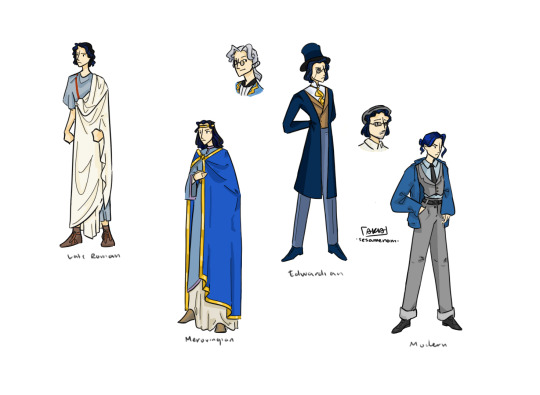
some ideas from an au where maglor just keeps living in britain (/himring?)
especially in the earlier eras he had to put a lot more effort into styling/dyeing his hair to cover his ears & the blueness/Elf Sparkle. he also wore glasses for a while to dim the Treelight Eyes (because even as badly faded as he is, it's still really obvious with how old he is).
#silm#silmarillion#maglor#seventh age stuff#<- adjacent au#weirdly modern maglor feels the closest to maglor-maglor?#but he also looks like a lawyer in a tv show for some reason?#like edwardian maglor's outfit is pretty similar structure wise (high collar/waistcoat/long coat) but the hat & hairstyle really affect it?#but modern maglor has roughly the same silhouette with the jacket and definitely the most freedom with the ear and hairstyle#early 1900s maglor has a sort of beard thing to not look too young but it looks weird on him i think#it probably wouldnt look as out of place if his hair was shorter but he needs to cover his ears somehow#honestly merovingian maglor looks pretty maglor-y the hairstyle is just not blue enough#the front curly bits on baroque maglor are very maglor-y despite being even less blue#...huh i guess maglor is just 80% Hair#the rest is just fancy clothes; sad harp; and depression#baroque maglor did turn out really well though#maybe because maglor-maglor already borrows a lot from the baroque composer style outfit wise? like he is for unknown reasons#the only YT-FoA elf with a waistcoat i think#through all of this he has remained mysteriously wealthy#(probably because he knows where all the treasuries are in himring)
106 notes
·
View notes
Text
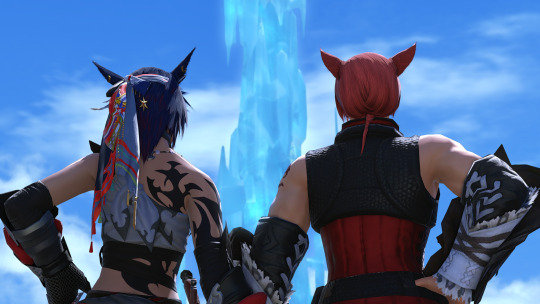
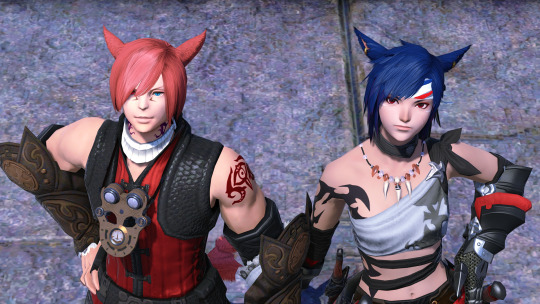
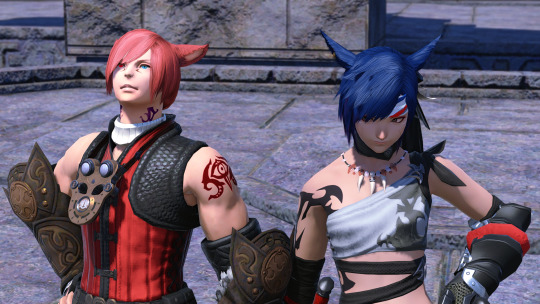
G'raha looked so serious while he pleaded his case to venture into the World of Darkness with the Warrior of Light. The sudden conviction in his tone had Arsay at a loss for words. Still, she did not hesitate to meet his request with an accepting nod. He was an important friend and in the passing moons that they'd come to know each other, a strong fondness for him had taken hold of her. The prospect of helping G'raha find the truth behind his mysterious inheritance made Arsay's heart pound. It was the perfect venture for them to embark on. The first of many, she hoped. The two turned towards the impossibly tall spire that dared to pierce the heavens above. Arsay's resolve strengthened in its presence. When they next find themselves gazing at the tower -with their quest completed and the world no longer under threat of total destruction- she'll properly ask G'raha to be a companion in her travels. A grin crept its way onto her face as her gaze shifted to him. If Arsay could find it within herself to bare her heart to others so readily just as he does… perhaps their future adventures will find them together, hand in hand.
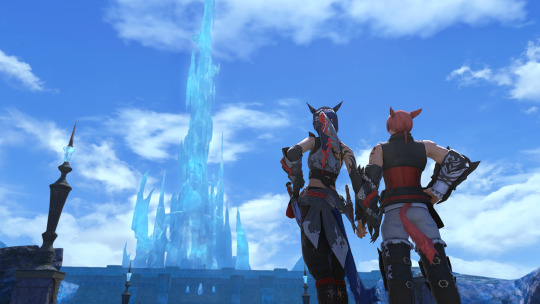
#ffxiv#wolgraha#WOL posting#G'raha tia#Arsay Nun#graharsay#idk just a random passage in my head that I needed to get out#im not a writer and im not pretending to be one but it was in my brain so sorry if its not as readable as I think it is#anyways imagine you are the loneliest catgirl in the world#and you meet a guy who is so swagless and cringe but in a charming way and he connects with you on a fundamental level#and you become really good friends and every time you show up he smiles in a way that makes your heart do somersaults#and you start thinking that maybe people actually like having you around not just when they need you to kill and destroy things#you let yourself open up a little and you're met with kindness and you realize you are very in love actually#but because you're still figuring out how to talk about your feelings you wait a little too long#and that guy seals himself up in a tower and tells you he'll think about your heroism in the future#and you are very sad and angry about this but thats not allowed so instead you put that energy to being the hero of all time#and every day you go to work you see the structure that reminds you of him and you cant let go of those what if feelings n ur cursed 5ever#would that be fucked up or what
38 notes
·
View notes
Text
idk how controversial this is but I’m actually such a big fan of s3a. it’s the exact kind of phantasmagorical bullshit that makes me kick my feet and grin like a fool. the whole show goes haywire and completely abandons the generic structure of the police procedural, and it totally gets away with it because at this point the narrative has unravelled so much that the show can safely let go of whatever conformity it was barely hanging onto in s2b. and on a metafictional level the shift in external genre strangely parallels the progression of the two main characters: just as will and hannibal have changed each other, the show too has revealed its true nature
#this is even further emphasised by s3a exploring hannibal’s backstory#like he’s been ripped open and the show has too#and now will’s peering in and trying to find the core of hannibal#so he can understand him#and in doing so finds the heart of the show#in all its gothic glory#but by the end will still doesn’t accept himself#and when he rejects hannibal and attempts to return to normalcy the show also returns to its old police procedural structure#except now it’s fragmented and unlike itself#much like will’s s3b persona#because he simply cannot return to how he was in s1#it doesn’t matter if he marries molly or tries to make a nuclear family for himself it’ll never be as it was#and he ultimately can’t deny himself#which is literally reflected in the show’s style because it’s so unlike s1#even if it tries to return to its original genre tropes and conventions#it ultimately reverts back to the gothic wonderland of s3a (the dragon fight + fall)#I didn’t mean to continue the analysis in the tags LMAO but I guess that’s how it is#I was too sleepy to articulate my thoughts two hours ago but now it’s 1:30am and I am so Awake#nbc hannibal#hannibal#hannibal meta#will graham#hannigram#ghost speaks
135 notes
·
View notes
